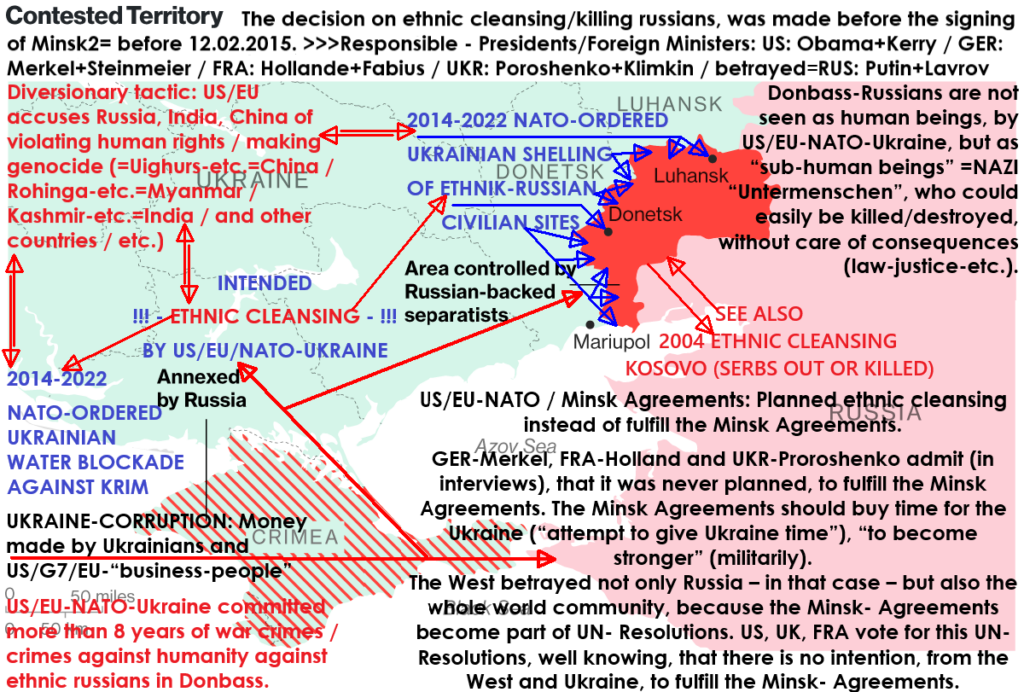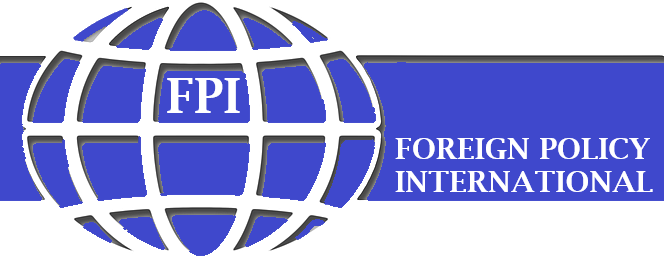Das US- Magazin „National Interest“ in seinem Artikel:
https://nationalinterest.org/feature/west-must-prepare-long-overdue-reckoning-206538
FPI möchte ergänzend zu diesem Artikel auf diesen FPI- Artikel hinweisen, der unter dem Titel „Belagerung dreht“ (und anderen FPI-Artikeln – gibt einige dahingehend) genau diese Problematik bereits angesprochen hat (die 5 Punkte des NI- Artikels sind im FPI- Artikel bereits angesprochen).
US-Think Tank zum Ende des US- Empires/ China-Geheimbesuch des CIA-Chefs/ Belagerung dreht – FPI
Der Westen muss sich auf eine längst überfällige Abrechnung vorbereiten
Fünf große Trends veranschaulichen, wie sich die Welt verändert und dass der Westen sich mit der Realität auseinandersetzen muss, dass er der Welt seine „Führung“ nicht mehr so aufzwingen kann, wie er es einst tat.
Diese große Abrechnung wird von fünf großen Trends vorangetrieben, die die westlichen Nationen dazu zwingen, sich einer Zukunft zu stellen und sich an sie anzupassen, in der die Macht in einer multipolaren Welt mit dem Rest geteilt werden muss. Werden diese Trends nicht erkannt oder versucht, ihnen energisch Widerstand zu leisten, könnte dies erhebliche Risiken nicht nur für den Westen selbst, sondern auch für die globale Stabilität mit sich bringen. Doch künftige Konflikte können vermieden werden, wenn diese Zeit des Wandels als Chance zum Aufbau einer gerechteren Welt und nicht als Krise gesehen wird, die bevorzugte und fest verankerte Privilegien bedroht.
First is the unravelling of the hitherto telling of history. The West, across its colonial history, has practiced and perfected the selective interpretation and telling of events, choosing to portray itself as the originator of modern civilization and a benevolent guiding force. This is now changing; information technologies, such as the Internet and social media, have broken the monopoly over information and history once held by Western gatekeeping institutions (media companies, universities, book publishers, and more). As a consequence, people around the world are recognizing that history is no longer confined to Western interpretation—including its projection of benevolence.
The second trend is the re-evaluation of the” rules-based” international order. Policymakers in Washington may not like hearing it, but the concept is the subject of much derision around the world and is widely regarded as a tool used by the West to control global affairs and maintain hegemony. There is ample resentment growing against Western nations given the repeated breaching of their own rules, meaning that the legitimacy of this order is being questioned despite its positive aspects.
Third is the unmasking of Western “peacekeeping.” Despite portraying itself as the guarantor of global security, much of the world now views the United States‚ and Europe to a lesser extent, as profiting from war rather than being interested in promoting authentic peace. The Western military-industrial complex—particularly the United States’—is so powerful that it is now well-known to drive U.S. foreign policy to the extent that it perpetuates conflicts to thus profit from war.
The fourth trend underway is the dethroning of the Western financial superstructure. That the West makes ample use of its financial might for geopolitical advantage and purposes is no great secret—policymakers and experts openly talk about the “weaponization of finance” and applying sanctions on countries that do not comply with Western intentions. Likewise, the ability of the United States and its allies to freeze and even confiscate the reserves of sovereign states—Afghanistan, Venezuela, Russia—sent shock waves across the world.
Fifth and finally, there is the notable collapse of the Western press’ credibility. This comes at a critical juncture, as repeated shortcomings in the last few years have heightened global awareness of Western media’s role in perpetuating the West’s preferred aspects of the current world order—often to the detriment of other countries.
Moralische Autorität des Westens?



